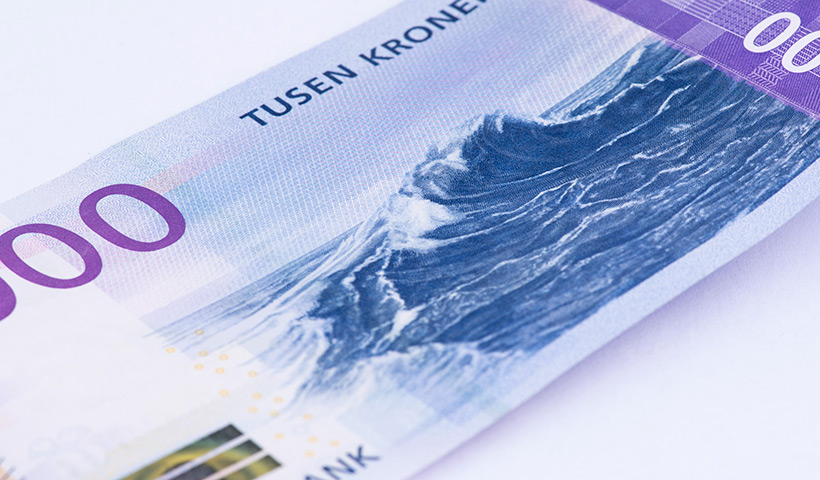Discover how much tax freelancers and the self-employed will pay while living and working in Norway.
Income tax is a complicated matter at the best of times. But for the self-employed, it can be a real headache keeping up with the paperwork.

While employees in Norway see their tax automatically deducted from their monthly salary, it works differently for the self-employed. You have to stump up the cash up-front, which can be a problem for cash-flow.
If you start a business in Norway having never run one before, you might struggle to get your head around how tax works. Here's a guide to what you need to know.
Table of Contents
Working for yourself in Norway
Registering a sole proprietorship is the easiest way to get started running a business in Norway. The paperwork is much less than with a limited company (AS). However, there are some notable downsides too.
Unlike an AS, a sole proprietorship and its owner are considered the same ‘entity' for tax and legal purposes. This means there are less opportunities for tax planning and the liability for the business is a personal one. In short, the buck stops with you!
How much tax do self-employed people pay in Norway?
This is a challenging question to answer, because there is no single income tax rate on sole proprietorships like there is on limited companies. As explained above, a sole proprietorship is not considered a separate entity from its owner.

This means an individual is taxed on their total income from all sources, which includes income from a sole proprietorship. For information on specific income tax rates for individuals, read our income tax article.
One important thing to bear in mind is that a self-employed person pays income tax on all profits earned during that year. There is no concept of a salary in a sole proprietorship.
So, if the business earns NOK 500,000 profit during the year, and the owner transfers NOK 300,000 of that to their personal account, the owner still pays income tax on the NOK 500,000 profit. This is a major difference from running a limited company.
Let's say an owner of a limited company earns an unexpectedly high amount of money during the year, say NOK 3,000,000. The owner could choose to pay themselves a salary of just NOK 500,000, on which they pay income tax. The company would still pay tax on the remaining company profits, but at a lower rate.
Withdrawing those profits in future years would incur income tax of course, but the point is the owner can defer those taxes to keep themselves in a lower tax bracket.

However, a self-employed person would have to pay tax on that entire NOK 3,000,000, pushing them into the very highest rates of tax.
Social security payments for the self-employed
Another difference comes with social security or national insurance payments. In Norwegian, this is known as Trygdeavgiften. If you are employed, your employer pays a contribution to the government on your behalf.
When you are self-employed, you need to take some–but not all–of this burden on yourself. This means that self-employed persons pay a higher social security rate than employees.
Employees pay 8.2% national insurance. This is ‘hidden' on the payslip as part of the overall tax deduction, but you do see the breakdown on the annual tax return assessment.
Self-employed individuals pay 11.4% national insurance. So, generally speaking, their total tax rate is approximately 3.2% higher than employees earning the same amount of money.

Self-employed persons within fishing, hunting or childminding in their own home (children under 12 years of age or with special care needs) pay a lower rate of 8.2%.
Advance tax payments in Norway
The most important requirement for being self-employed in Norway is that you pay your taxes in advance. This is something that can easily trip up the unprepared. Cash flow is king in business, but even more so in a sole proprietorship!
Advance tax is paid four times a year based on the estimated annual profit from the sole proprietorship.
Upon startup, you notify the authorities of the expected profit in the first year. You'll receive an invoice for the four payments. Any difference is settled during the annual tax return process the following year.
In subsequent years, advance tax is invoiced based upon your earnings in previous years. However, you are able to change the expected profit on which advance tax is based during the year. This is very important to do if you expect to make less money in the year ahead.
The advance tax can be a real challenge to pay in the early years of a business, especially the first year before you make any real profits.
So, it's absolutely worth consulting with a tax accountant to make sure you are fully aware of your business circumstances and any options available to you. Even if you intend to do your business bookkeeping yourself, this is money well-spent.



Hi David,
thanks for the article.
Considering moving to Norway and working remotely I would have to register as self-employed for the tax purpose.
I couldn’t find this information anywhere, so maybe you could know. If you are self-employed in Norway you pay 11.4% social contribution. Is that the total amount of social contributions you have to pay or you are still required to pay employer social contributions on top of that?
Asking because in Sweden as self-employed you have to pay employee and employer social contributions as technically you are your own employer, which ends up as a very high amount in that scenario.
Thanks,
Robert
Hi, yes as it says in the article this is what you pay. Self-employed people pay a higher contribution than a regular employee because there is no employer’s contribution.
Hi David,
Thank you for your inputs here.
We are from the Philippines. My son and I are moving to Norway for family immigration because my husband holds a residence permit to work there. I am working remotely so I am planning to register as self-employed for tax purpose. Can I just ask, will I get the benefits of a permanent resident like free education for my son, and future child etc? I am torn to let go of my job as I already get used to be working with them, or just look for a job in Norway to get benefits.
Thanks,
Cris